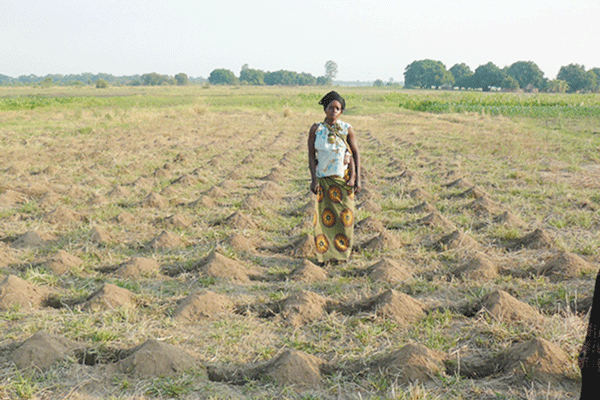
FARMERS in Insiza district have resorted to drought mitigation programmes as a way of dealing with drought-induced by climate change, NewsDay Weekender has established.
BY SHARON SIBINDI

Farmers at Gcabayi and Amazon A and B villages, under Chief Bekezela Sibasa, are among those who have ventured into drought mitigation programmes implemented through Environment Africa, Dabani Trust and Practical Action, funded by Zimbabwe Project Trust (Zimpro) and Trocaire.
The farmers told NewsDay Weekender during a media tour organised by Environment Africa in Insiza early this week that drought-mitigatiion programmes were the way to go.
Several non-governmental organisations have provided the farmers with goats, fencing, electricity and water storage tanks to ensure they improve their production levels.
“Our expectations are to survive through conservation farming. Thanks to Zimpro and Troacaire and other organisations which managed to equip us with such knowledge. I got the training in 2009 and between June and July, I will start preparing the land by digging holes and then put goat manure mixed with tree leaves. I will then plant my maize later. As a widow, I have been surviving through conservation farming. I have been harvesting tonnes of maize each season and this year, I am expecting two tonnes,” Gladys Ncube, a farmer at Amazon A, said.
Ncube also has goats from Troacaire which gives her manure for conservation farming.
Blessed Sibanda from Gcabayi said their area had low rains and at times they fail to harvest even a bag of maize so they embarked on cattle-rearing projects with the aid of Zimpro.
- Chamisa under fire over US$120K donation
- Mavhunga puts DeMbare into Chibuku quarterfinals
- Pension funds bet on Cabora Bassa oilfields
- Councils defy govt fire tender directive
Keep Reading
“We started contributing money as 10 women to a group fund. Each one of us would contribute R5 and then we would lend that money to others at a stipulated interest. The fund grew and we purchased 10 cows, five of which now have calves,” she said.
“We are happy that the project is going somewhere and now we have defied odds as women are looked down upon.
Traditionally women are known to only have one cow, ‘inkomo yohlnago’.
“This has motivated us as the business is growing and we are now expanding to an irrigation scheme for Village 12 in Gcabayi.”
Speaking during the tour, executive director of Zimpro, Tobias Chipare, said the district being in Region 4, continuously experiences drought challenges every year.
During the tour, some communities at Village 10 had to adapt their water harvesting methods, where they built a 6 000-litre tank which collects water from the rain for the community during dry times.
The community managed to get the help from Zimpro in building the infrastructure.
Other communities adopted energy-saving stoves to improve the efficiency, instead of open fires which consume more firewood, leading to deforestation.
The energy-saving stove consumes less firewood, is time-saving and reduces indoor pollution, which, according to studies, kills many women in Africa because of smoke inhalation.
According to official statistics, Zimbabwe has 11 000 dams, which could potentially irrigate 11 million hectares of land.











